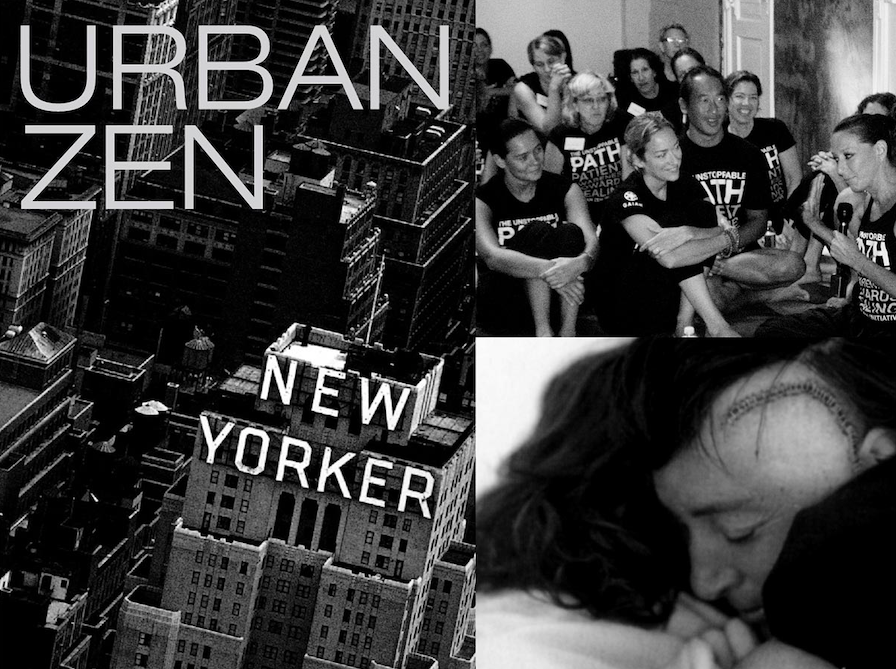
Well+Being Holistic Mental Health
Emotional Health & Wellness Tips From The Therapy Couch And Other Places
Try A Little Mindfulness In Your Daily Life
How Meditation and Mindfulness Support Anxiety, Depression, and Emotional Healing: A Holistic Psychotherapy Perspective
Many of my clients in New York City come to therapy and wellness coaching seeking relief from persistent symptoms of anxiety, depression, addiction, disordered eating, and emotional overwhelm. Increasingly, they are drawn to holistic practices like meditation and mindfulness—natural tools that help regulate the nervous system, improve mood, and promote emotional resilience.
Motivated by both personal curiosity and promising research, these clients are looking for therapeutic strategies that support healing without relying solely on medication. For individuals seeking integrative, non-pharmaceutical options, meditation and mindfulness practices can be powerful complements to psychotherapy.
The Science Behind Mindfulness And Mental Health
Over the past decade, peer-reviewed studies and neuroscience research have shown that consistent mindfulness and meditation practices lead to positive changes in brain function and structure. These changes include:
Decreased activity in the amygdala (the brain’s fear center)
Increased gray matter in areas related to emotional regulation
Improved connectivity in regions associated with focus and executive functioning
Reductions in cortisol levels and blood pressure
Enhanced immune system response and resilience to stress
For clients struggling with panic disorder, generalized anxiety, or mild to moderate depression, mindfulness-based interventions have been shown to reduce emotional reactivity, increase present-moment awareness, and support behavioral change.
A Therapist’s View: Why Mindfulness Belongs In Mental Health Care
As a psychotherapist trained in both traditional and integrative modalities, I have long encouraged interested clients to incorporate mindfulness, meditation, and body-based practices into their healing process. Especially for those who prefer a non-medication route, a multi-modal treatment approach can include:
Radical Acceptance: Cultivating Peace Within When Life Feels Unbearable
This week in my eating disorder seminar, we revisited the concept of distress tolerance—the quiet, powerful skills we call upon when emotions feel overwhelming. As we explored how to navigate emotional intensity, I found myself reflecting on one of the most grounding practices we have: radical acceptance.
In a culture that urges us to fight, fix, or fake our feelings, radical acceptance invites something entirely different. It asks us to soften. To lean into the truth of what is, without judgment or resistance. It doesn’t mean we approve of pain or give up hope. It means we stop fighting reality—and begin meeting ourselves with compassion and clarity.
What Does Radical Acceptance Look Like?
Choosing to accept, fully and from within
True acceptance isn’t performative or forced. It’s not bypassing, and it’s not pretending. It comes from within, and it begins with the willingness to be honest about what’s here.Recognizing that pain is part of being human
Every one of us experiences fear, sorrow, grief, shame, and heartbreak. These emotions are not flaws. They are evidence of aliveness. When we stop judging our pain, we begin to suffer less.Stopping the fight against reality
Resisting emotions often amplifies them. Avoiding pain often deepens our distress. Radical acceptance helps us release the exhausting need to control what cannot be controlled. And in doing so, we begin to make space for peace.
It’s not the emotion itself that overwhelms us. It’s the struggle against it.
Improving the Moment: Skills from DBT Therapy
When radical acceptance feels out of reach, distress tolerance skills from Dialectical Behavior Therapy (DBT) can help us get through the moment without making things worse. One helpful acronym is IMPROVE, which offers small, doable strategies to shift your state and calm your nervous system.
Imagery
Visualize a safe or peaceful place. Allow yourself to engage all your senses. Imagine what you see, hear, smell, and feel in that space. Let your body respond as if it were real.
Urban Zen Center: Dr. Mark Hyman Speaks On Diabesity
(by Kim Seelbrede, originally posted on urbanzen.org, Nov 10, 2010)
Mark Hyman, MD Returns to Urban Zen: A Functional Medicine Approach to Reversing Diabesity and Chronic Disease
The Urban Zen Center was honored to welcome back Mark Hyman, MD, a visionary leader in functional medicinewho lovingly refers to Urban Zen as his "second home." On October 30, 2010, a packed studio gathered in the heart of New York City’s West Village for a full-day workshop on one of the most urgent health crises of our time: Diabesity—a metabolic epidemic at the intersection of obesity, insulin resistance, and type 2 diabetes.
Dr. Hyman, a best-selling author and founder of The UltraWellness Center, delivered a compelling, science-backed message: chronic disease is not inevitable—and it is often reversible through lifestyle and systems-based medicine.
Understanding Diabesity: A National Health Crisis
“Diabesity” is the term Dr. Hyman uses to describe a spectrum of metabolic dysfunction that ranges from mild blood sugar imbalances to full-blown type 2 diabetes. And the numbers are staggering:
Nearly 3 out of 4 Americans are classified as overweight or obese.
1 in 3 military volunteers is considered unfit for service due to obesity.
Children today may be the first generation not expected to outlive their parents.
This epidemic isn’t just a public health concern—it’s been labeled a national security threat by military leaders.
Dr. Hyman challenged us to rethink what we’ve been told about health and disease. The problem, he explained, is not genetic fate or bad luck—it’s the failure of conventional medicine to address the root causes of chronic disease. Instead of masking symptoms, we must treat the whole system. That’s where functional medicine steps in.
Functional Medicine: Treating Root Causes, Not Just Symptoms
Throughout the day, Dr. Hyman introduced key concepts that underpin his functional medicine approach, including:
Epigenetics & Nutrigenomics: We may carry genes for disease, but lifestyle choices can influence whether those genes are expressed. By addressing nutrient intake, inflammation, and cellular stress, we can “turn down” harmful genes and “turn up” healing ones.
Feeling Overwhelmed by Therapy Options? Here’s How to Find the Right Fit for You
Making the decision to begin therapy is a significant and empowering step. But for many in New York City—where therapy options seem endless—the process of choosing the “right” therapist can feel overwhelming, even paralyzing. Whether you’re seeking therapy for yourself, your relationship, or your family, understanding the landscape of available approaches can make all the difference.
If you’re unsure where to begin, a helpful resource is The Huffington Post's article on different types of therapy, which offers an introductory look at several major modalities: Psychodynamic Psychotherapy, Cognitive Behavioral Therapy (CBT), Dialectical Behavior Therapy (DBT), Family Therapy, and Group Therapy. While not exhaustive, it’s a useful starting point for understanding how therapy styles align with specific mental health needs.
Therapy Is Not One-Size-Fits-All
At Holistic Therapy & Wellness NY, we frequently hear from individuals and couples who have tried therapy before and felt it “didn’t work.” Often, the issue wasn’t therapy itself—it was a mismatch between their needs and the therapist’s approach.
If you’re struggling with self-defeating or self-sabotaging patterns, Psychoanalytic or Depth Therapy can help uncover unconscious motivations that drive behavior.
If your concerns revolve around anxiety, panic, or trauma, evidence-based treatments like EMDR, Somatic Psychotherapy, and Mindfulness-Based Cognitive Therapy can be transformative.
Couples in conflict should seek a therapist trained in Couples Therapy, ideally using structured methods like the Gottman Method, Emotionally Focused Therapy (EFT), or Imago Relationship Therapy.
For high-achieving professionals, creatives, and public figures in NYC, a discreet, holistic approach that integrates neuroscience, somatic healing, and emotional intelligence is often most effective.
How To Choose The Right Therapist In NYC
While directories like Psychology Today can help you browse local therapists, sometimes a brief phone consultation isn’t enough to make an informed decision. Many of our NYC clients find that a paid consultation with an experienced, licensed psychotherapist provides the clarity needed to choose the best therapeutic path. In these consultations, we explore your goals, challenges, and preferences, and make personalized recommendations tailored to your emotional, relational, and nervous system needs.





